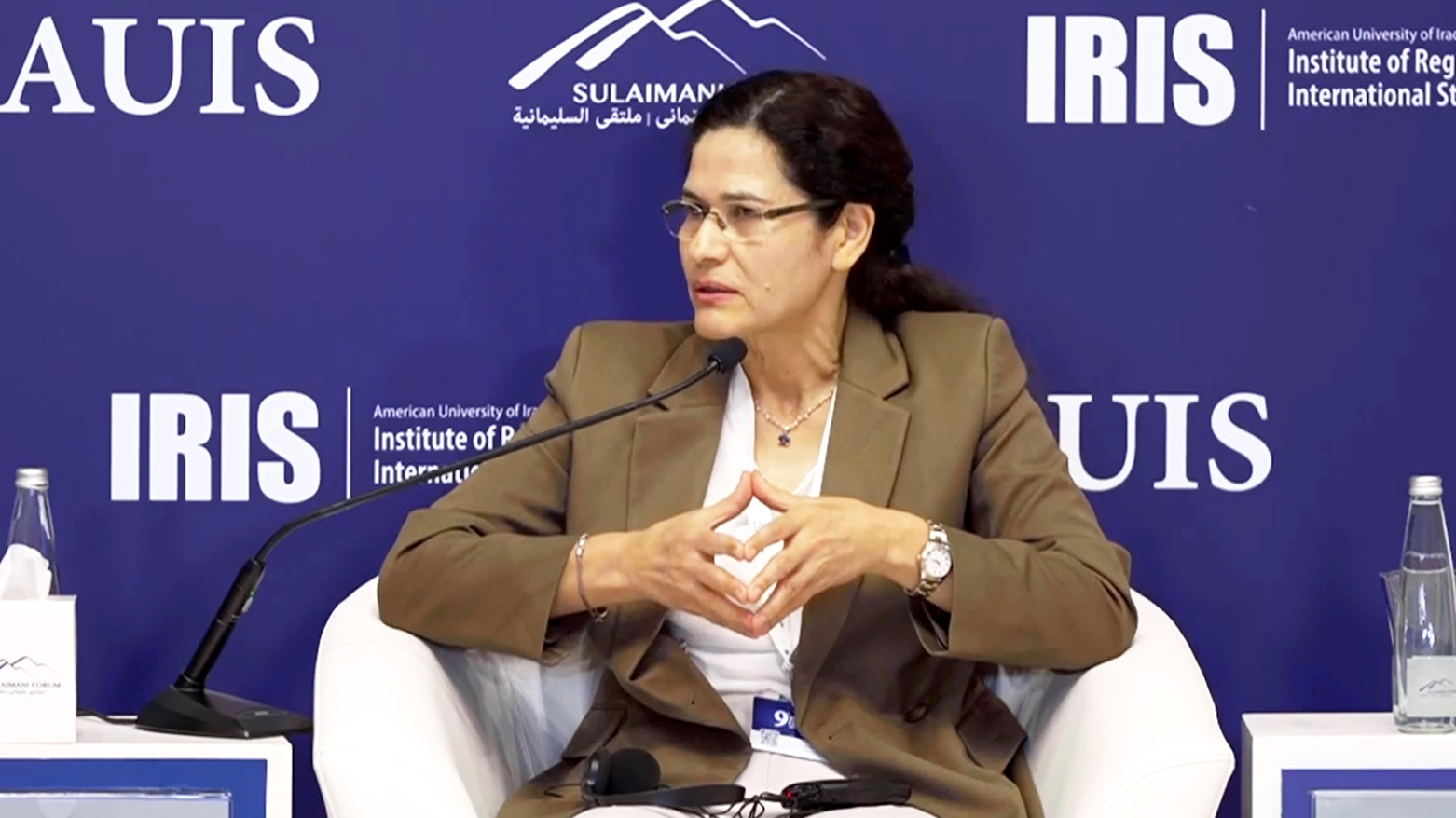Ilham Ahmed to Kurdistan24: The Kurdistan Region’s Experience Is a Historic Asset for all Kurds
“The legacy of centralization has failed. What we need is a decentralized system that guarantees the rights of all components—including Kurds—under a democratic and pluralistic framework.” said Ilham Ahmed.

By Ahora Qadi
ERBIL (Kurdistan 24) – Ilham Ahmed, Head of the Foreign Relations Committee of the Democratic Autonomous Administration of North and East Syria (DAANES), underscored the strategic importance of the Kurdistan Region’s political journey, describing it as “one of the most significant experiences in modern Kurdish history” that could guide Kurdish aspirations in Syria.
Speaking at the Sulaymaniyah Forum on Thursday, Ahmed noted that while the Kurdistan Region’s development occurred within the federal framework of post-Saddam Iraq, Syria presents a markedly different political, social, and cultural reality. “Any model we adopt must reflect Syria’s unique internal dynamics,” she said.
A Model of Governance—but Not a Copy-Paste
“The Kurdistan Region emerged within a federal Iraq as a distinct Kurdish administrative entity, shaped by its own geography and political agreements,” she explained. “However, Syria’s situation is vastly different. Its political structure, demographic composition, and historical trajectory require tailored approaches, not imported templates.”
She continued: “We must also consider the diverse experiences of other nations that resolved ethnic and national claims through inclusive political frameworks. Syria encompasses a mosaic of ethnicities and cultures, and our political system must reflect that complexity.”
Ahmed stressed that a return to pre-2011 Syria was both unrealistic and undesirable. “The legacy of centralization has failed. What we need is a decentralized system that guarantees the rights of all components—including Kurds—under a democratic and pluralistic framework.”
A Turning Point in Kurdish-Syrian Dialogue
Referring to the recent agreement between Mazloum Abdi, Commander of the Syrian Democratic Forces (SDF), and Ahmad al-Sharaa, head of Syria’s transitional government, Ahmed hailed the deal as “a historic milestone.”
“This agreement puts an end to the decades of accusations leveled against us—accusations that we sought division. As the Autonomous Administration, we’ve always been labeled with separatism, but our demands were always about recognition, not secession. This deal finally proves that,” she told Kurdistan24.
She added that implementation remains a priority, with joint committees now discussing mechanisms and technical details. “So far, significant progress has been made, especially on contentious issues such as the Sheikh Maqsoud and Tishrin Dam areas. We hope to reach broader political understandings by the end of this month.”
The Road Ahead: Political Reform and Rebuilding
Ahmed emphasized the need for clear constitutional arrangements that include Kurdish rights. “We are part of the process to reconstruct Syria—not just physically, but institutionally. We see ourselves as active and committed partners.”
Addressing the lessons learned from the Kurdistan Region, she stated: “We observe Kurdistan's experience as a source of insight, but not a blueprint. Syria’s demographic and political structure differs even from that of Iraq. Our decisions must reflect Syrian realities, not simply replicate other models.”
Strategic Patience and Realism
Finally, Ahmed reiterated her belief that Syrian Kurds must remain united, pragmatic, and engaged. “We are navigating a decisive phase in Syrian history. With unity, political maturity, and regional cooperation, we can help define a new, inclusive Syria—one where Kurds are not guests but equal stakeholders.”